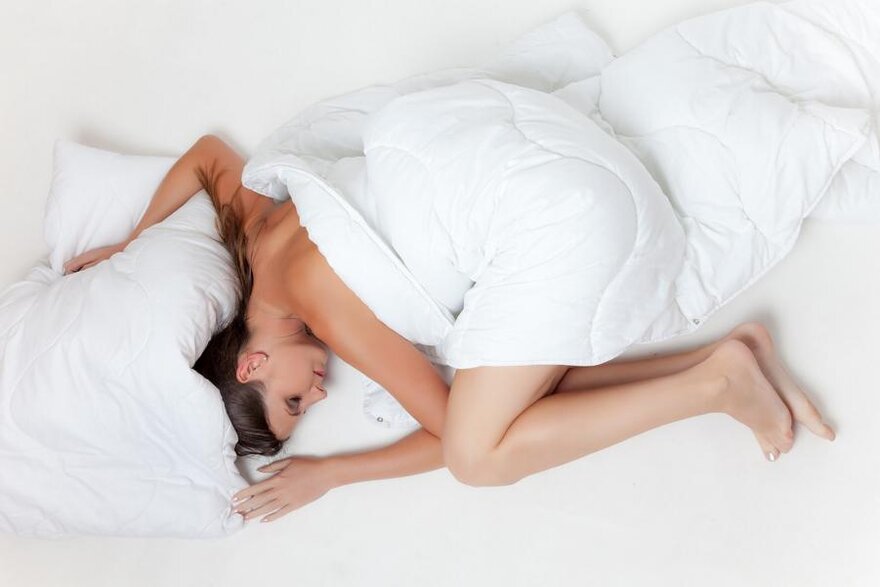Lots of people have trouble sleeping – and often don't go looking for help until it's much too late. Lack of sleep causes huge costs for employers and the German economy.
Around 1 in 10 people suffers from chronic insomnia – a sleep disorder that is classified as an illness based on clinical criteria. 30% have trouble getting to sleep or staying asleep at least occasionally.
Having trouble sleeping leaves you tired during the day, meaning you won't perform as you should and will generally feel unwell, which limits you in your social and work interactions.
While the exact figures in Germany have not been quantified, it is fair to assume that related illnesses or accidents on the road or in the workplace which issues with sleep can cause are creating a high number of absences, resulting in high costs.1
The causes are many – too much stress and not enough time to get your body into a relaxed state in the evenings or using smartphones late into the night. The blue light these devices give off signals to the body that it is still day-time, meaning it is not yet time to power down. But trouble getting to sleep or staying asleep can also be the result of poor diet, lack of exercise or irregular working hours, such as shift work.
Society ignoring the issue
Among all of this, sleep-related issues can go untreated for a long time. "No-one sleeps well" is one of the standard phrases people use, which is not helpful for sufferers. Medical records also fail to mention trouble sleeping when reporting on the consequences because this issue is rarely documented as a cause or diagnosis when signing people off work.
Sleep hygiene – What can help us achieve a better circadian rhythm?
According to a report by German health insurer, DAK, there are many known behaviours that supposedly encourage good sleep and combat sleep-related issues. However, these routines or recommendations, referred to as "sleep hygiene", are rarely put into practice in the real world. Very few people follow a conscious routine before going to bed, for example. Techniques for relaxing before going to bed are also few and far between and data indicates that most people do not limit their consumption of media before bed-time.
It is also recommended that you switch off the TV and stop using mobile devices at least one hour before you plan to go to bed. Alcohol – which it is often incorrectly assumed helps with sleep – does not help you get a good night's sleep either. While it can sometimes help you get to sleep, it has a negative effect on the quality of your sleep and does not help you stay asleep.
The particular challenge of shift work
Shift workers have to deal with sleep-related issues more than the rest of us. The INQA (the German government's Initiative for New Quality in Work) lists a range of useful tools for shift workers, such as an online check for shift workerswhich addresses issues such as your sleeping rhythm.
Early intervention required
According to a DAK health report, many sufferers manage the issue by themselves for around 2 years before seeking out professional help.
INSITE helps its clients' employees and their family members to question their own sleeping patterns and address problems with their sleep. As part of our Find a Consultant service, we can also help put sufferers in touch with sleep labs.
Tips and tricks event
Because it is important to address these difficulties as soon as they arise, INSITE offers events aimed at giving a wider group of employees tips and tricks for overcoming problems with sleeping.
Sources:
1 DAK Gesundheitsreport 2017
https://www.dak.de/dak/bundes-themen/muedes-deutschland-schlafstoerungen-steigen-deutlich-an-1885310.html
http://www.t-online.de/leben/id_81468184/schlafstoerungen-quaelen-millionen-arbeitnehmer.html
